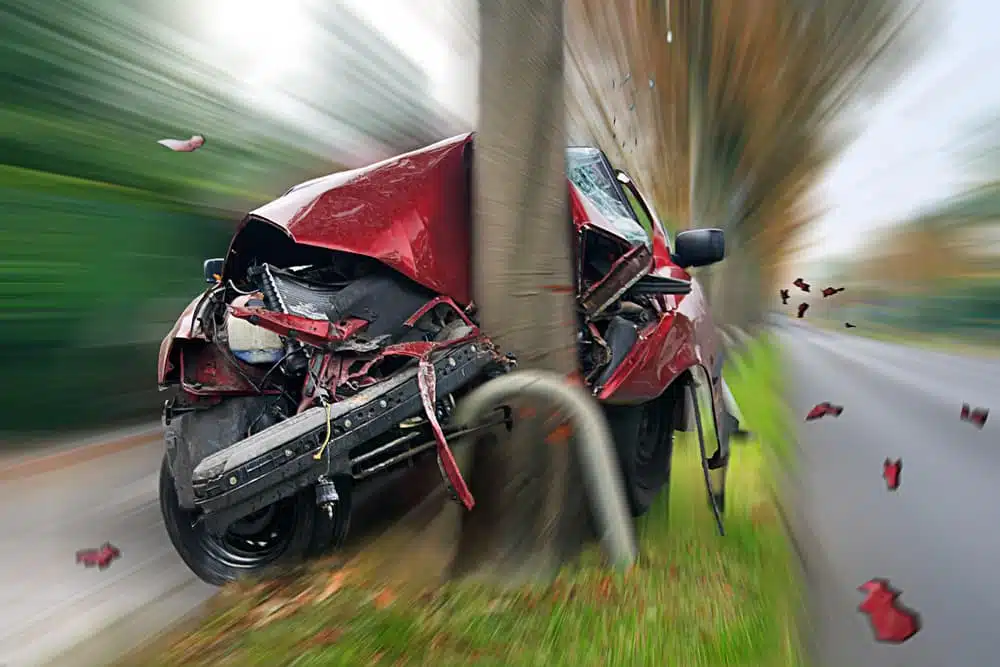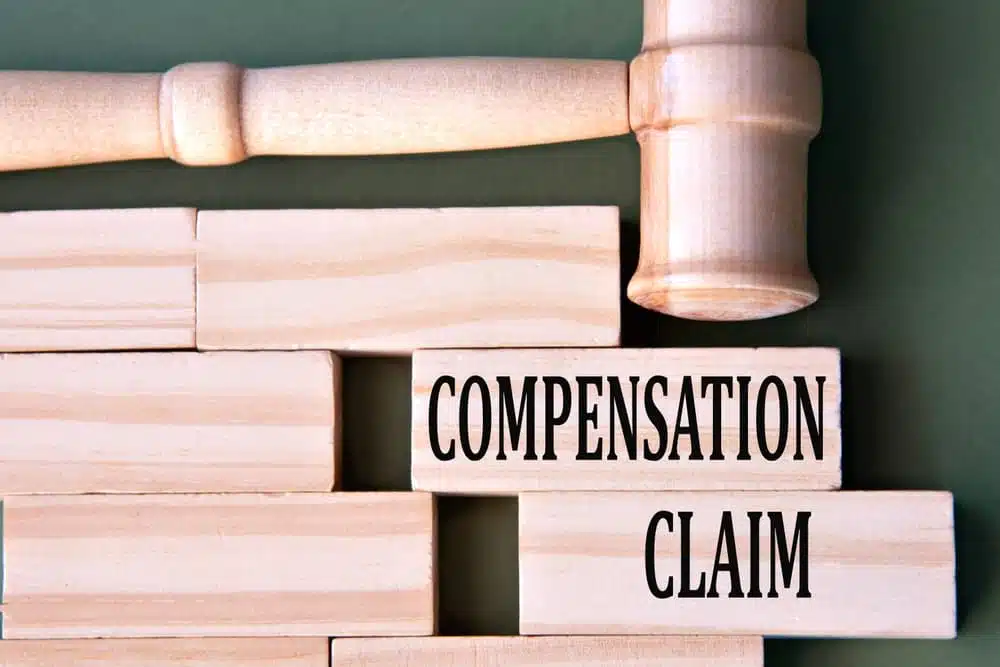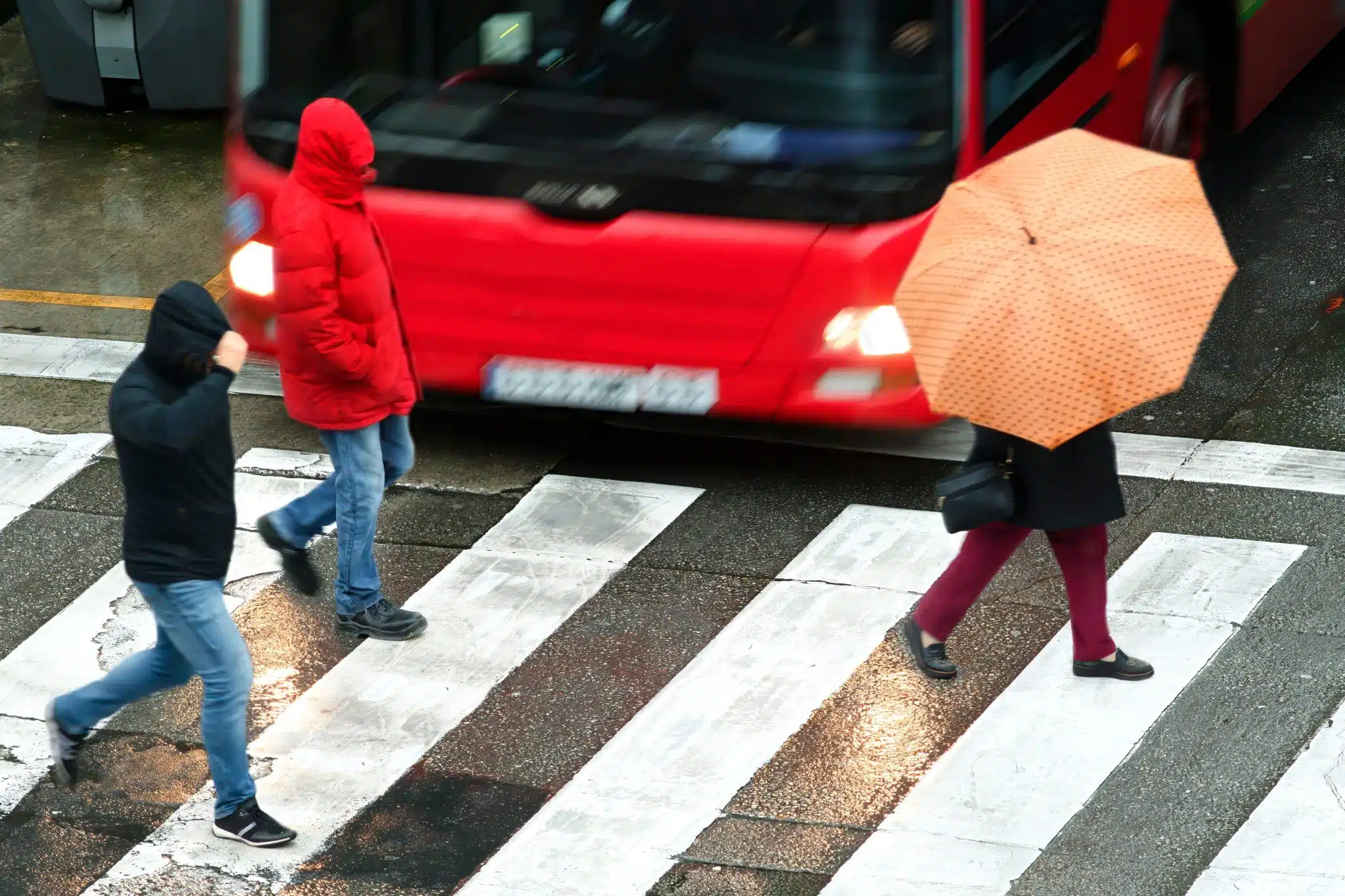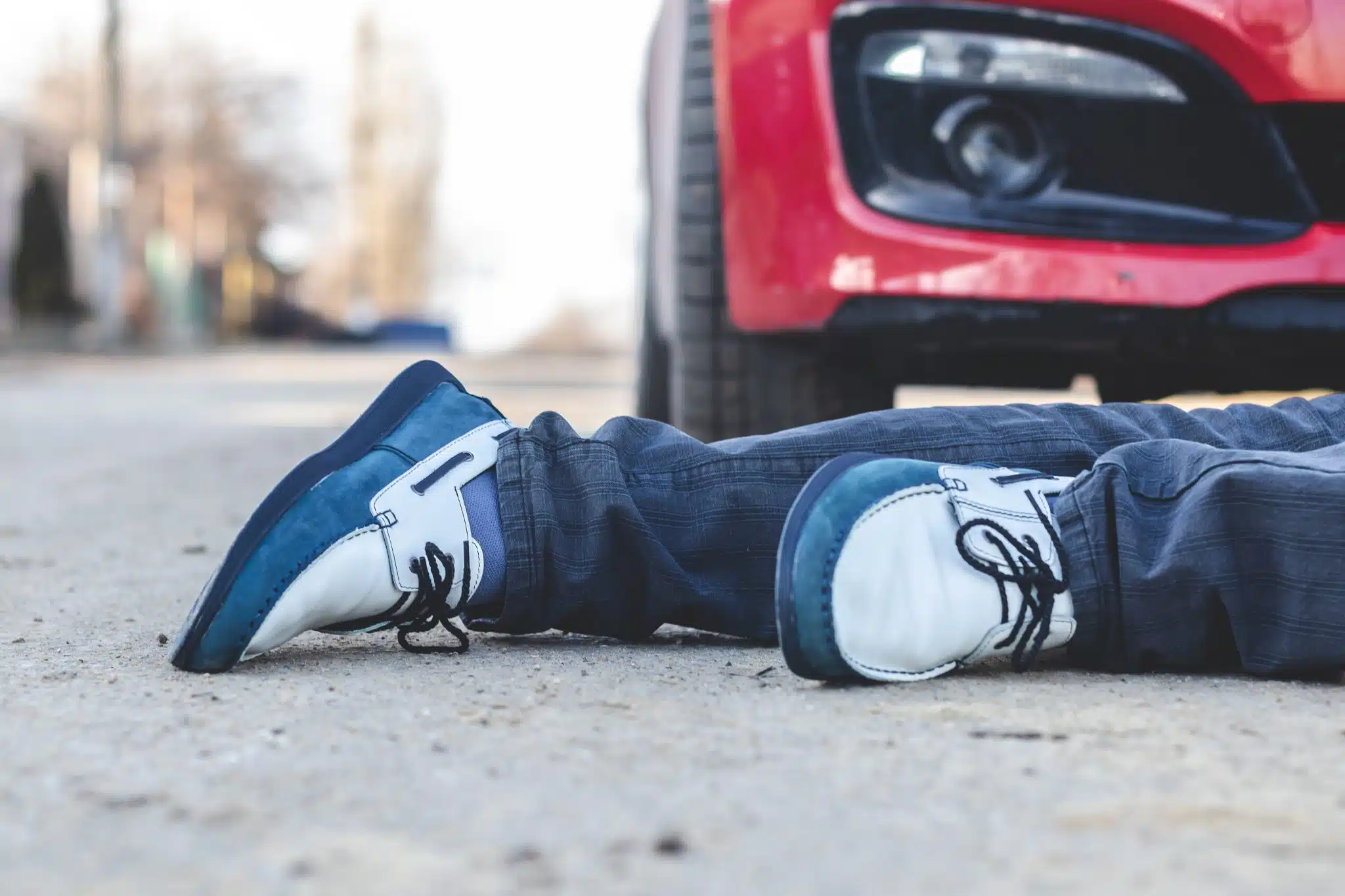
Speeding is a major factor in fatal accidents. According to the National Highway Traffic Safety Administration (NHTSA), speeding is a factor in approximately 29% of fatal accidents in the United States. That’s nearly 10,000 deaths each year.
Speeding is not only dangerous for the driver, but also for everyone else. When drivers speed, they have less time to react to dangerous situations.
If a speeding-related accident injured you or someone you know, you may recover compensation. The experienced car accident attorneys at the Rothenberg Law Firm get you the compensation you need.
The Dangers of Speeding
Speeding poses numerous risks to drivers, passengers, and others on the road. Here are some of the key dangers associated with speeding:
- Reduced reaction time: When driving at high speeds, drivers have less time to react to sudden changes in traffic, road conditions, or unexpected obstacles.
- Increased stopping distance: The faster a vehicle is traveling, the longer it takes to come to a complete stop. This can be especially dangerous in emergencies or when encountering sudden traffic slowdowns.
- Loss of vehicle control: Higher speeds make it more difficult to control a vehicle, particularly when navigating curves or in adverse weather conditions.
- Decreased effectiveness of safety equipment: While modern vehicles are equipped with advanced safety features, these systems may be less effective at higher speeds. Airbags and seat belts, for example, may not provide the same level of protection in high-speed crashes.
- Increased severity of crashes: The force of impact in a collision increases exponentially with speed. Even a small increase in speed can significantly increase the severity of injuries in an accident.
- Reduced ability to assess situations: Speeding can impair a driver’s ability to accurately judge distances and potential hazards on the road.
Factors Contributing to Speeding
Some common factors that contribute to people speeding include:
- Running late: Many drivers speed when they’re running behind schedule for work, appointments, or other commitments.
- Traffic congestion: Frustration with heavy traffic can lead some drivers to speed when opportunities arise.
- Disregard for the law: Some individuals simply don’t respect speed limits or believe they don’t apply to them.
- Thrill-seeking: For some drivers, particularly younger ones, speeding provides an adrenaline rush.
- Peer pressure: Drivers may feel compelled to speed to keep up with the flow of traffic or due to pressure from passengers.
- Lack of awareness: Some drivers may not realize how fast they’re going, especially on long stretches of highway.
- Alcohol and drug impairment: Substance use can impair judgment and lead to risky behaviors like speeding.
- Overconfidence: Experienced drivers or those with high-performance vehicles may overestimate their ability to handle high speeds safely.
Consequences of Speeding
The consequences of speeding extend far beyond the immediate risk of accidents. They include:
- Legal consequences: Speeding tickets, fines, license suspension, and even jail time for repeat offenders or extreme cases.
- Financial impact: Increased insurance premiums, legal fees, and potential civil lawsuits resulting from accidents.
- Physical injuries: From minor cuts and bruises to severe, life-altering injuries or death.
- Emotional trauma: Survivors of speeding-related accidents may experience long-lasting psychological effects, including PTSD, anxiety, and depression.
- Property damage: Speeding increases the likelihood and severity of damage to vehicles and other property.
- Environmental impact: Higher speeds lead to increased fuel consumption and emissions, contributing to air pollution and climate change.
- Social costs: Speeding-related accidents burden emergency services, healthcare systems, and society as a whole.
Common Injuries in Speeding-Related Accidents
Speeding-related accidents often result in more severe injuries due to the increased force of impact. Here are some of the most common injuries associated with high-speed collisions:
1. Whiplash
Whiplash is a neck injury caused by sudden, forceful back-and-forth head movement. It’s particularly common in rear-end collisions but can occur in any high-speed crash. Symptoms may include neck pain, stiffness, headaches, and dizziness.
2. Traumatic Brain Injuries (TBI)
The force of a high-speed collision can cause the brain to collide with the skull, resulting in concussions or more severe traumatic brain injuries. These can range from mild (with temporary symptoms) to severe (potentially causing long-term cognitive impairment or disability).
3. Spinal Cord Injuries
High-impact crashes can damage the spinal cord, potentially leading to partial or complete paralysis. Even less severe spinal injuries can cause chronic pain and mobility issues.
4. Bone Fractures
The force of a speeding accident can easily break bones. Common fractures include broken ribs, arms, legs, and pelvic bones. In severe cases, compound fractures may occur, where the bone breaks through the skin.
5. Internal Injuries
Blunt force trauma from a high-speed collision can cause internal injuries such as organ damage, internal bleeding, or pneumothorax (collapsed lung). These injuries may not immediately appear but can kill victims.
6. Soft Tissue Injuries
Sprains, strains, and tears to muscles, tendons, and ligaments are common in car accidents. While less severe than some other injuries, they can still cause significant pain and require lengthy recovery periods.
7. Cuts and Lacerations
Broken glass, twisted metal, and loose objects in the vehicle can cause cuts and lacerations. In high-speed crashes, these injuries can be severe and may result in significant blood loss or scarring.
8. Burn Injuries
While less common, fires can occur in severe crashes, especially if the fuel system is compromised. Burns can range from minor to severe and may require extensive treatment and rehabilitation.
9. Chest Injuries
The impact of a crash, combined with the force of an airbag deployment, can cause chest injuries ranging from bruising to more severe injuries like broken ribs or damage to internal organs.
The severity of these injuries often correlates with the speed at the time of impact. Even a small increase in speed can significantly increase the risk and severity of injuries.
After a speeding-related accident, seek immediate medical attention, even if you don’t initially feel injured.
Legal Implications of Speeding
Speeding is not just dangerous; it also carries significant legal consequences:
- Traffic citations: Speeding tickets can result in fines, points on your license, and increased insurance premiums.
- License suspension: Accumulating too many speeding tickets or being caught driving at extremely high speeds can lead to license suspension.
- Criminal charges: In cases of excessive speeding or when speeding results in an accident with injuries or fatalities, drivers may face criminal reckless driving or vehicular manslaughter charges.
- Civil liability: Speeding drivers who cause accidents can be held financially responsible for injuries and damages through civil lawsuits.
- Impact on insurance: Speeding tickets and accidents can lead to higher insurance premiums or even policy cancellation.
- Employment consequences: For those who drive for a living, speeding violations can jeopardize their employment and professional licenses.
Compensation in Speeding-Related Accidents
After an accident where speeding was a factor, you may recover compensation. The type and amount of compensation can vary depending on the specifics of your case, but generally falls into the following categories:
1. Medical Expenses
This includes costs for emergency treatment, hospital stays, surgeries, medications, physical therapy, and any future medical care related to your injuries. It’s crucial to keep all medical records and bills to support your claim.
2. Lost Wages
If your injuries prevent you from working, you may be compensated for lost income. This can include both past wages lost during recovery and potential future earnings if your injuries result in long-term disability.
3. Property Damage
You may recover compensation for damage to your vehicle or other personal property involved in the accident.
4. Punitive Damages
In cases where the speeding driver’s behavior was particularly reckless or egregious, punitive damages may be awarded to punish the wrongdoer and deter similar conduct.
Factors Affecting Compensation
Several factors can influence the amount of compensation you might receive:
- Severity of injuries
- Impact on your daily life and ability to work
- Clarity of fault (e.g., if the other driver was clearly speeding)
- Insurance policy limits
- Your own potential contribution to the accident
Seeking Compensation
To maximize your chances of receiving fair compensation:
- Seek immediate medical attention and follow all treatment plans.
- Document everything related to the accident and your injuries.
- Avoid discussing the accident on social media.
- Don’t accept early settlement offers from insurance companies without legal advice.
- Consult with an experienced personal injury attorney who can accurately value your claim and negotiate on your behalf.
Remember, each case is unique, and the compensation you may receive can vary. An experienced attorney can help you understand the potential value of your claim and work to ensure you receive fair compensation for your injuries and losses.
What to Do If You’re Involved in a Speeding-Related Accident
If you find yourself involved in an accident where speeding was a factor, take the following steps:
- Ensure safety: Check yourself and others for injuries and move to a safe location if possible.
- Call emergency services: Report the accident to the police and request medical assistance if needed.
- Document the scene: Take photos of the vehicles, road conditions, and any visible injuries.
- Gather information: Exchange contact and insurance information with other involved parties.
- Seek medical attention: Even if you don’t feel injured, get checked out by a medical professional.
- Report to your insurance company: Report the accident, but be cautious about giving detailed statements until you’ve spoken with an attorney.
- Get legal representation: If you’ve been injured due to someone else’s speeding, consult with an experienced car accident attorney to understand your rights and options for compensation.
Speeding Accident? Talk to the Car Accident Attorneys at the Rothenberg Law Firm LLP
If you or someone you know has been injured in a speeding-related accident, it’s important to seek both medical and legal assistance. The experienced personal injury lawyers at the Rothenberg Law Firm can help you understand your rights and pursue the compensation you need to move forward with your life.
Contact us today for your free consultation. We look forward to getting you on the road to recovery.





